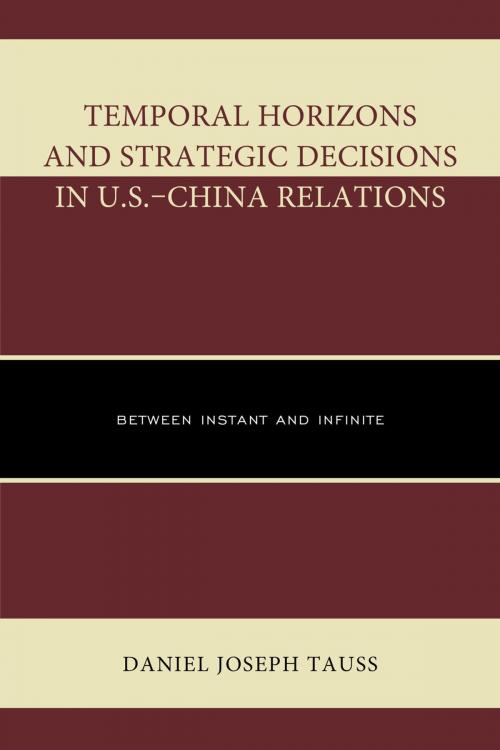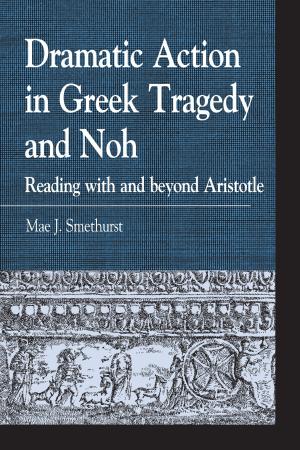Temporal Horizons and Strategic Decisions in U.S.–China Relations
Between Instant and Infinite
Nonfiction, Social & Cultural Studies, Political Science, Politics, Economic Policy, Government, Public Policy, International, International Relations| Author: | Daniel Joseph Tauss | ISBN: | 9780739188286 |
| Publisher: | Lexington Books | Publication: | May 6, 2015 |
| Imprint: | Lexington Books | Language: | English |
| Author: | Daniel Joseph Tauss |
| ISBN: | 9780739188286 |
| Publisher: | Lexington Books |
| Publication: | May 6, 2015 |
| Imprint: | Lexington Books |
| Language: | English |
Using an interdisciplinary social-science approach, Temporal Horizons and Strategic Decisions in US–China Relations: Between Instant and Infinite takes on the challenge of understanding the foreign policy decision process through the lens of the temporal horizon. A temporal horizon is the distance into the future a decision-maker prioritizes when evaluating outcomes and considering possibilities. By looking at a number of recent key moments of US–China relations that have immediate, short-term, long term, and far-reaching implications, the book considers which are predominant in the policy process. Looking at the role of time as a factor in the decision-making process is not new to political science, but this book attempts to break down and articulate the process by looking at a range of specific time frames. The book places special attention on future considerations in a variety of ways, combining the insights of psychology, economics, and future studies to consider political science in a new manner.
Using an interdisciplinary social-science approach, Temporal Horizons and Strategic Decisions in US–China Relations: Between Instant and Infinite takes on the challenge of understanding the foreign policy decision process through the lens of the temporal horizon. A temporal horizon is the distance into the future a decision-maker prioritizes when evaluating outcomes and considering possibilities. By looking at a number of recent key moments of US–China relations that have immediate, short-term, long term, and far-reaching implications, the book considers which are predominant in the policy process. Looking at the role of time as a factor in the decision-making process is not new to political science, but this book attempts to break down and articulate the process by looking at a range of specific time frames. The book places special attention on future considerations in a variety of ways, combining the insights of psychology, economics, and future studies to consider political science in a new manner.















